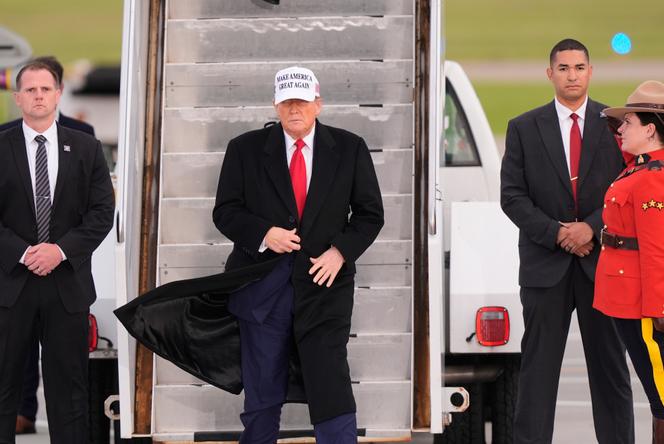

The 50th annual G7 summit opened on Sunday, June 15, in Kananaskis in the Canadian Rockies, with one main objective: to avoid a repeat of the last G7 meeting held in Canada, in 2018, when President Donald Trump, then in his first term in office, left the summit, furious, and refused to sign the final joint statement, threatening to impose tariffs on his partners and calling the host country's prime minister, Justin Trudeau, "very dishonest and weak."
Today, the atmosphere is even more toxic as the leaders of the seven largest Western economies (the United States, Canada, Japan, Germany, United Kingdom, France, Italy), plus the European Union, meet. Two wars are raging in the immediate neighborhoods of G7 countries: Russia's war on Ukraine and, since Friday, the conflict between Israel and Iran, which has come in addition to the war being waged in Gaza. US tariffs are no longer just a threat but a reality, with the rates currently being negotiated, and the G7's organizers have found an effective way to avoid the issue of a final joint statement: There won't be one.
As for Trudeau's successor, Mark Carney, he has found himself in the unusual position of hosting a US president who has repeatedly claimed that his country, Canada, should be the 51st US state, and to whom he has had to explain that his country is not for sale.
It is now common knowledge that Trump's second presidency is much more offensive than the first was. The divisions within what can hardly still be called the "Western family" have now been fully brought out into the open. Meanwhile, European efforts have mainly focused on avoiding a brutal break with the US, rather than trying to conceal the discomfort caused by division. In light of this new reality, a successful summit is one without any melodrama or major confrontation. Limiting the damage has become a goal in and of itself.
Amid such an atmosphere, the Europeans' priority must be to present a united front. Even though it will loom over the discussions, the issue of tariffs – which have thrown global trade into chaos – should be left to negotiations between the US and the European Union. Instead, points of convergence can be found on some chosen topics, which Canada has selected for separate discussions, such as the fields of energy security, critical minerals, or emerging technologies.

For the rest, the European and Japanese leaders are faced with an American president who, on returning to the White House in January, boasted that he could broker peace in Ukraine and Gaza, as well as persuade Iran to abandon its nuclear ambitions, and who has failed on all counts. They will, therefore, have to remain firm on Ukraine and make good use of the presence of its president, Volodymyr Zelensky, at a part of the summit, to once again try to rally Trump to support their stance on Russia. Trump has regularly suggested that Russia be readmitted to the G7, something that is clearly out of the question, just as his suggestion, on Sunday, of Russian mediation in the conflict between Israel and Iran was also unacceptable.
On this latest flashpoint, which risks dominating the discussions due to the risk of escalation and its impact on energy markets, getting President Trump to clarify his strategy would already be an achievement. If, that is, he even has one.
Translation of an original article published in French on lemonde.fr; the publisher may only be liable for the French version.
